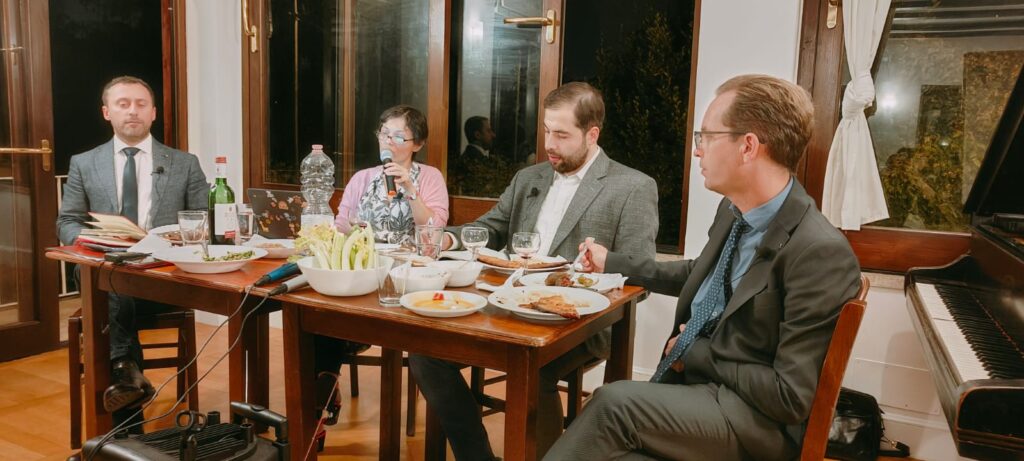At the end of October, JPII Center Leader Prof. Claudia Leal Luna (Cohort III) and Russell Berrie Fellow Halil Avci (Cohort XV) engaged in a public dialogue around the role of the family and theology in contemporary civil societies. Hosted by Instituto Acton and its Collins Center for Abrahamic Heritage, this event engaged Pope Francis’ Amoris Laetitia (The Joy of Love), a post-synodal apostolic exhortation, to address the question: Is the family still a locus theologicus in civil society? “Family is a universal experience shared by our respective religions,” shares Avci, “Our families share common challenges; it is important to understand this point in order to find common solutions.”
Leal Luna, who holds a PhD in Moral Theology from the Accademia Alfonsiana and began teaching this year at the Pontifical Institute of John Paul II for Studies on Marriage and Family at Rome’s Lateran University, served as the speaker; within the context of secular redefinitions family structures, she called into question “whether the family today is still perceived as a domestic church and can reflect the image of the Economic Trinity.” Avci, an MPhil candidate at the Divinity School at the University of St. Andrews in Scotland and a Muslim theologian, served as the respondent: to offer possible forms of collaboration and cooperation between Islam and Christianity in the promotion of dignity for the institution of the family.
Avci reflects: “I found it fascinating to have shared the stage with Claudia and to truly have shared a conversation with her. I also was grateful for the spirit of the audience during the Q&A time. It was as if we were experiencing an ideal of what interreligious dialogue means, it was a respectful exchange and appreciation of different perspectives on a rather universal discussion topic such as the family.”
The intentional interreligious framing of this event offered an expansive space for conversation and contemplation around the multifaceted issue of family and theology. Avci says that he left the conversation with “a great deal of appreciation of the practice and reality of interreligious dialogue here in Rome.”
This encounter was an opportunity to put theoretical education around interreligious dialogue into practice. The family-like atmosphere highlights the culture of the JPII Leaders Network, which has gathered together and trained more than 130 Leaders dedicated to interreligious dialogue from around the world.
“This was a valuable event,” Avci concludes, “and I look forward to future events like this also including more non-Christian participants who are also eager for interreligious dialogue.”

